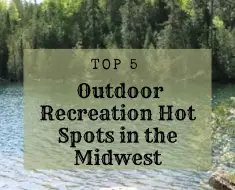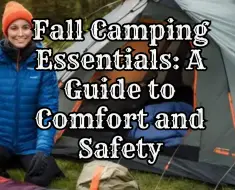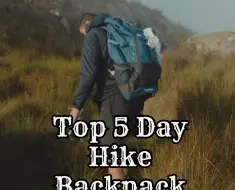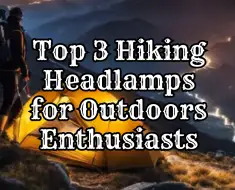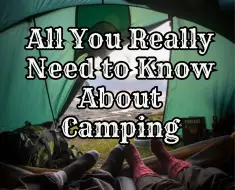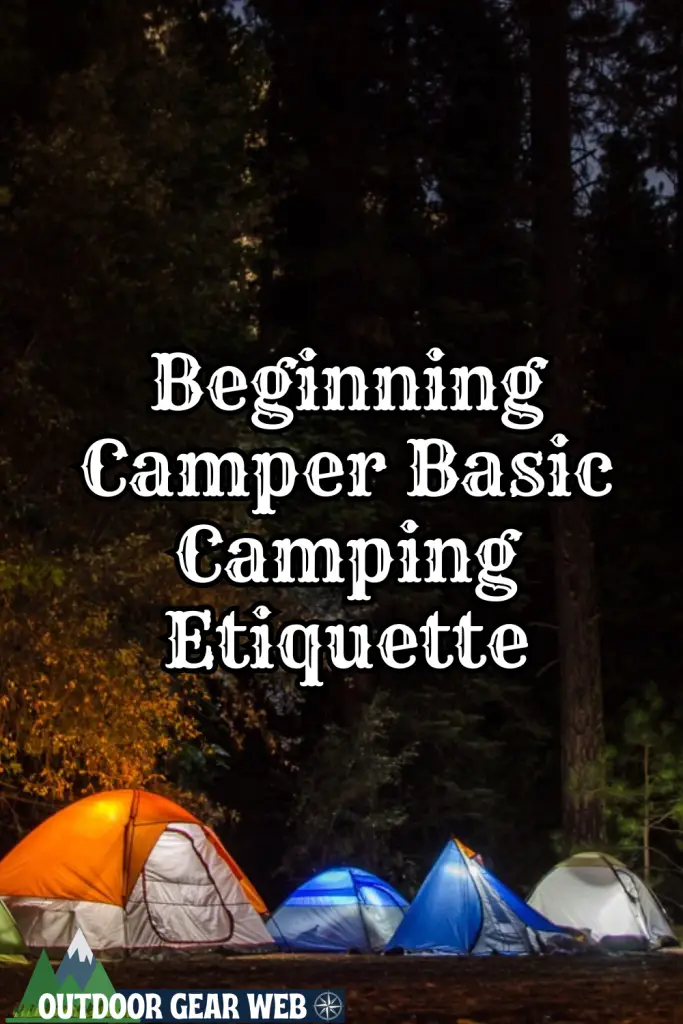
Likely you already know how wonderful camping can be to escape the hustle and bustle of daily life and recharge. However, there is more to camping than just buying gear and reserving your campsite. As a new camper, you may spend a lot of your trip at a developed campground. This means that even though you are looking to escape groups of people you will still be near others. Nothing ruins a camping trip more than loud obnoxious neighbors. Having awareness of basic camping etiquette is critical to ensuring that you, your family, and other campers enjoy their escape. Keep reading if you don’t want to be that obnoxious neighbor.
Now that being said many of the basic camping etiquette techniques discussed here also apply if you head off into the backcountry. Experienced campers who choose to do more dispersed camping should also follow basic camping etiquette to preserve the wilderness for the next outdoor adventurers. If this isn’t your first trip into nature you may find some of these tips as common sense. However, common sense isn’t common! So, buckle in for our list of basic camping etiquette that will ensure a safe and enjoyable camping trip.
Use your new camping etiquette skills at these family campgrounds in Iowa.
Campground: Basic Camping Etiquette
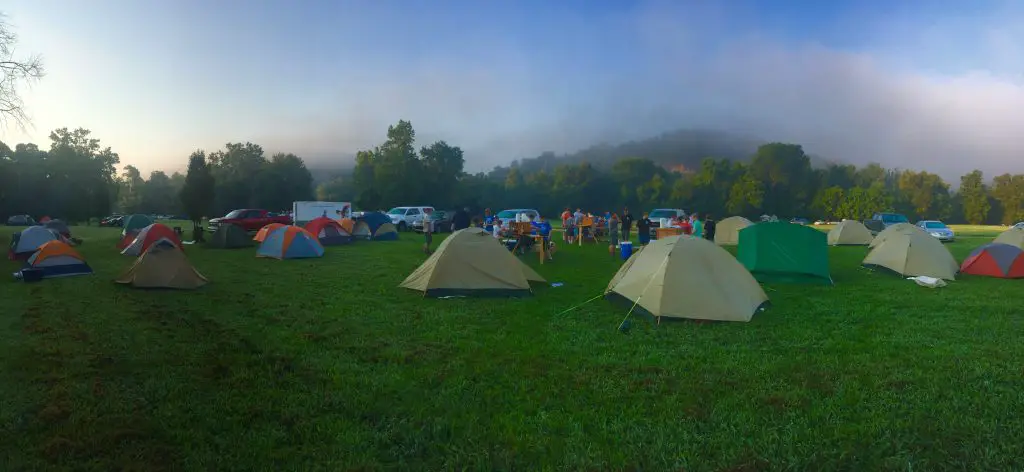
If this is your first trip and you are looking to test out your skills you may want to stay in a designated campground. Whether this is a state or national park or a private campground (like KOA) the etiquette listed below will be very beneficial. In fact, just understanding these basic rules will make the trip go smoother and you will likely meet some new friends along the way.
Follow campground arrival and departure times
Much like a hotel, every campground is going to have set arrival and departure times. This is to facilitate any cleanup that is necessary between campers. Arriving at the determined times will help everything at the campground run smoothly and ensure that your site is ready for you when you arrive. Additionally, plan ahead to make sure that you are not arriving after dark. Not only is setting up your site in the dark difficult, but you will likely need to make noise that others do not want to hear. Besides the noise setting up or tearing down in the dark is going to require the use of lights that may impact others around you. Sometimes arriving after dark cannot be avoided. If this happens then you should be cognizant of your noise level and your lights.
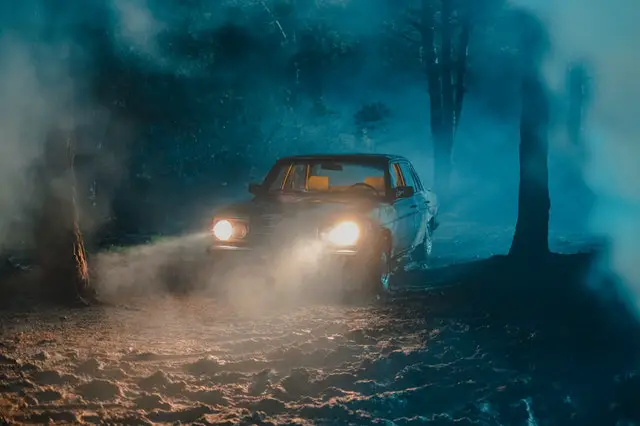
You can find many instances online of people not enjoying their time camping because of those arriving late. Personally, while tent camping at Dinosaur National Monument my late-night slumber was accosted by someone trying to back in their trailer. They let their headlights blare directly into my tent and at one point pulled their truck within 10 feet of the tent wall. Then there was constant slamming of the trailer door as they went in and out.
Be respectful in your car
There are many reasons to be respectful in your car. No matter the time of day there are likely to be families around with children. So, drive slowly through the campground. Like really slowly. There is no reason to go Mach 5 through the campground. Additionally, turn off your headlights once you reach your campsite. Safety is key but leaving the car running and the lights on is not going to help anyone! Don’t stop there though! Before you head to the campsite learn how to turn the alarm or notification honks off. There is nothing worse than a three a.m. wakeup by car alarm! As a side note, make sure you place the key fob somewhere that you can’t accidentally roll over onto it and set off the alarm!
If you open your car when it’s already late or very early in the AM, don’t slam your door. You can just close it slowly and then give it a firm bump and it will close 10x more quietly.
Most campgrounds have ample parking for your vehicle along with your tent or RV. So don’t park on the road if you’re supposed to park on your site. It makes it hard to get around you or see people walking. Also, if you must bring multiple cars do not try to fit them all into a small campsite just to have them close. Use the overflow parking that is normally provided for the second vehicle.
Keep your campsite clean
This one should honestly be a no-brainer. Yet, we see people completely trashing their campsites. They leave trash all over the place at the end of the day or worse when they leave. Trash can cause a whole host of problems including insects and animals. While it may not necessarily impact you all those who come after will suffer. Remember that cigarette butts are trash and don’t belong on the ground. Litter and rubbish just generally detract from the beauty of wherever you are staying so pick up your trash and deposit it in the proper areas. This will help prevent animals from coming into your campsite and getting into your food. While you’re at it pick up rubbish even if it’s not your own. Leave the campsite better than when you found it!
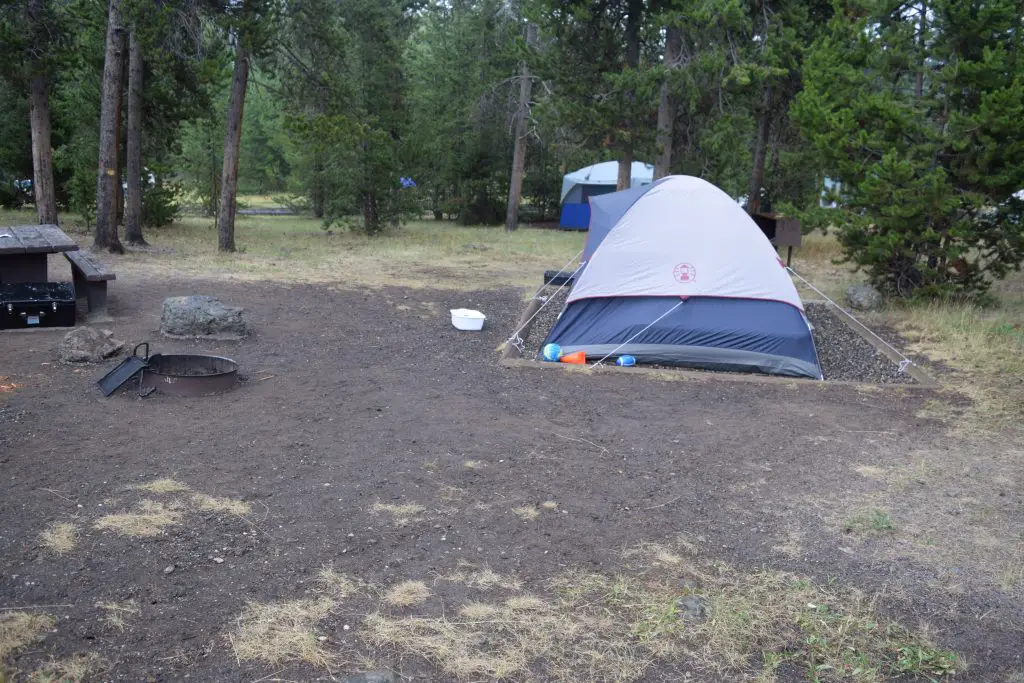
Further, while you are at the campsite it is not just trash that will make your campsite seem dirty. If you are in a large group or with a family try and keep your things organized. Not only will you have a better trip knowing where things are, but others won’t have to look at the unsightly space. Even in developed, private campgrounds people are trying to escape from clutter and overuse. Consider using well-labeled footlockers or Rubbermaid containers if you are car camping. Not only will things stay neat and secure, but at night you will be able to quickly find the things you need to limit noise. If you help to keep your site neat and tidy during your stay then everyone can enjoy the natural scenery that surrounds you!
Learn more about organizing your squeaky clean campsite!
Respect your neighbor’s space
On day one of any scout outing in a multi-use campground is proper identification of how to move through the campground. Many people do not realize that there are proper methods of getting from point A to point B in a campground. The bottom line here is to respect your neighbor’s space. Don’t walk through their site just because it’s quicker to get to the water, bathroom, or fishing hole instead of using the defined paths and roads. Think about it this way. You would not walk through someone’s hotel room just to get to the pool. So don’t do it in a campground. Make sure that your children are aware that they should not be entering other’s campsites as well. It is not their duty to monitor your children near a fire, pets, or in the wilderness.
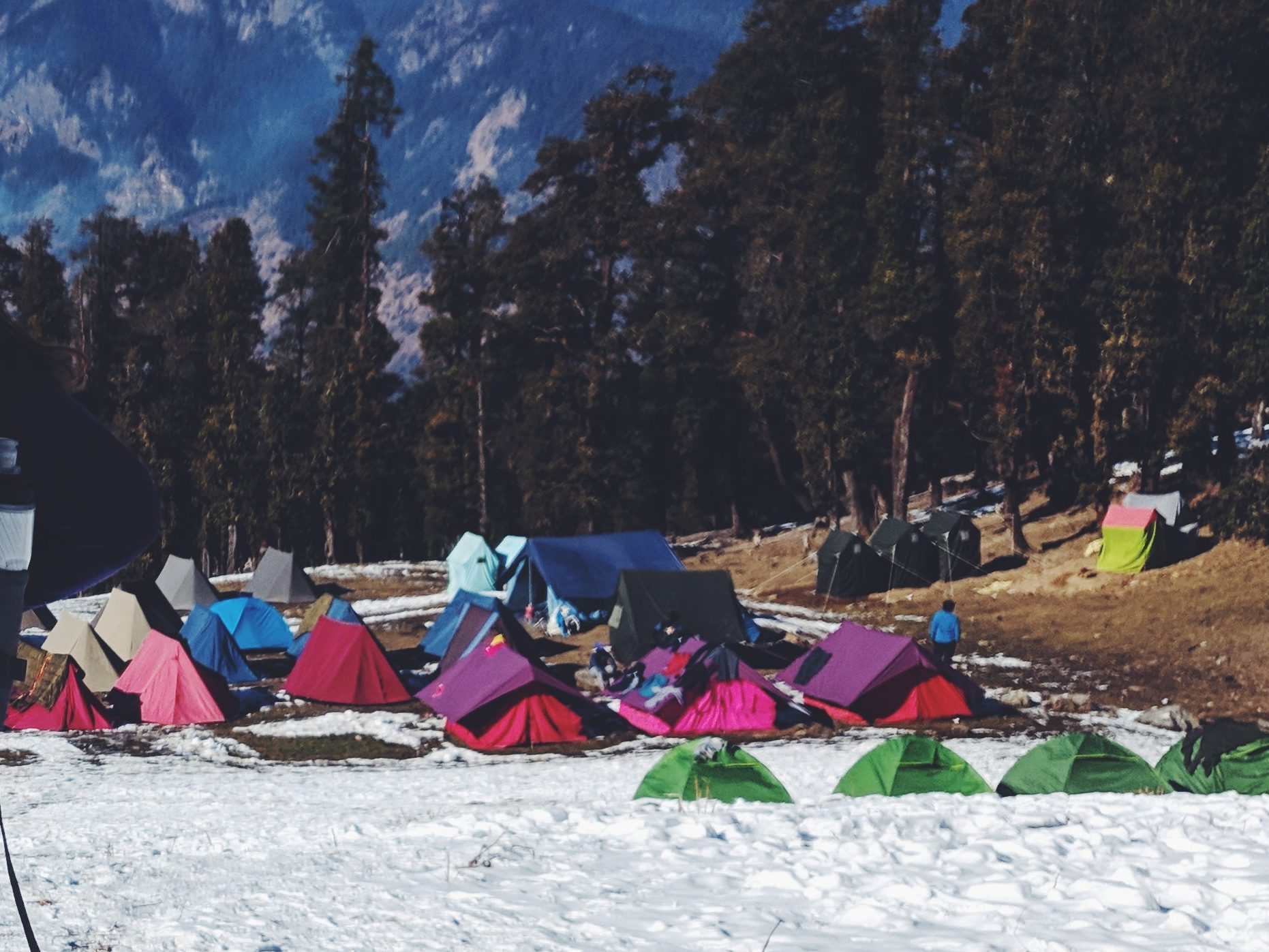
There may be instances though in a campground where trails lead adjacent to or through a campsite. In these instances, it is proper to ask for permission to transit a campsite. Before entering announce yourself, and request to proceed. Many campers after being shown respect will permit you to pass. Teaching this little step to your children early in their camping career can set them off on the right foot.
Follow campground quiet hours
How many times have you been at a campground in the summer after sunset and the site next to you decides this is the time to start a rager? If it hasn’t happened to you yet and you are looking to camp a lot, just know it is coming. So don’t be that group. Try and organize your gatherings before quiet hours. Most campgrounds will clearly indicate what their quiet hours are. Follow them! Remember that without the constant hum of electronics or city noises your voice is much louder than you think. Not only that but it will carry further through the still air of nature. So if you are meeting around the campfire make sure that you are using your library voice out of respect for those around you. You can still have fun without hooting and hollering until midnight!

Beyond just your voice being overly loud after hours. You have to think about the noise your gear makes. This includes everything from pots and pans to generators. Having things properly stored and knowing how to access them will make things a little quieter. If you are in an RV don’t run your generator at night. Try and top off your batteries during the day when people are gone. The campground has set those generator hours for a reason. When we head out into nature we aren’t looking for generator noise and again even if you think you are far enough away, you are not.
Mind your lights after dark
Light pollution is a problem in the city but it shouldn’t be a problem when you head out to camp. We need to see in the dark since we aren’t owls, so we need a flashlight. However, don’t flash your flashlight into someone’s campsite when walking around at night. Keep it from shining directly in people’s eyes. Additionally, turn down lanterns and those extra lights! To some extent, we can see in the dark with the ambient light of the moon. The more artificial light you introduce the harder it will be for your eyes to adjust. Most people go camping to see the stars, not five lanterns going full blast. So be judicious with your light use invest in a flashlight that has a red light setting. This is better for keeping your own eyes adjusted in the dark and it also helps with stargazing.
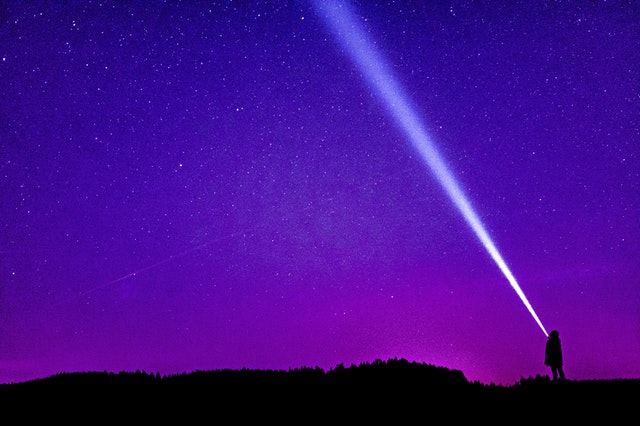
Take care of the pooch
Setting up camp with your canine companion can be either great or troublesome. My pups have always loved to be outside with us and explore nature. Following some essential canine manners while camping will make you a good neighbor. It will also help to keep your puppy safe. So be a canine envoy and follow each of these things when you bring along the family dog.
The first and foremost thing is to pick up after your dog. Whenever possible move your dog away from the campsite to do their business. No one wants to smell or see the puppy leaving a deposit or worse having a latent smell of urine. So pick up after them and place the refuse appropriately. Many developed campgrounds include a dog park for just this reason.
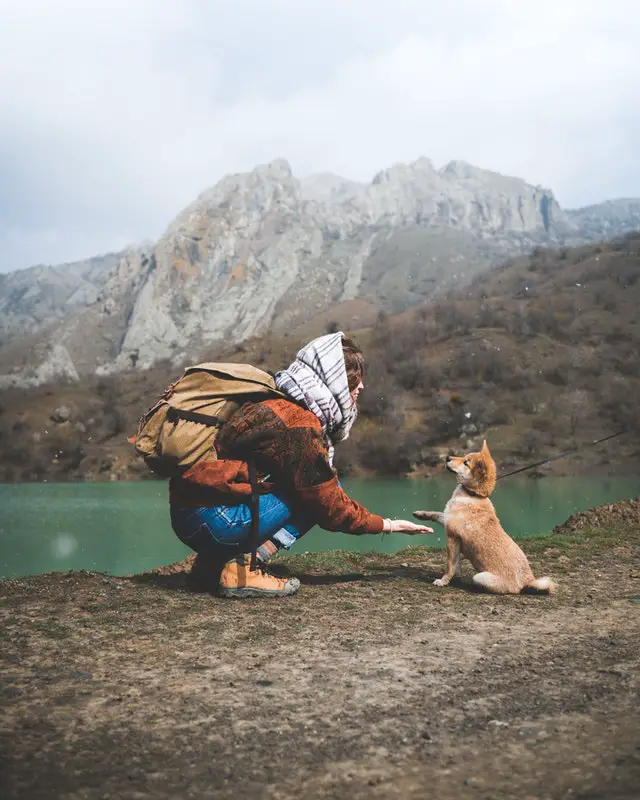
Most camping areas have rules about leaving your dog unattended. To keep away from issues, be certain you oversee your canine consistently. This is especially the case during the day. If you are heading out to explore nature take them with you. Why bring your dog on a camp vacation if they do not get to enjoy the outdoors as well? Taking them with you will especially help if your puppy likes to bark at things that go bump outside. It could also help to prevent damage to your tent, car, or RV.
Finally, just because your canine is the most amiable little guy on the planet, doesn’t mean he needs to meet and welcome everybody. There are lots of people who love dogs, but not everyone does. You have to be respectful of others’ space. Remember, while your puppy may be very friendly the human they are meeting may not be.
Don’t move firewood
Moving firewood from one camping site to another is frowned upon almost everywhere in the United States now. This is because invasive species and other creepy crawlies are destroying our habitats. These critters are hitching a ride in your firewood to seek out new forests to devour. It is important that we prevent the spread of these invasive species and the easiest way to do so is to not bring firewood from somewhere else camping with you. So while it may stink to have to purchase campground firewood it is better for the environment. Keep it local because wood can carry invasive bugs that escape into the ecosystem when you burn it.
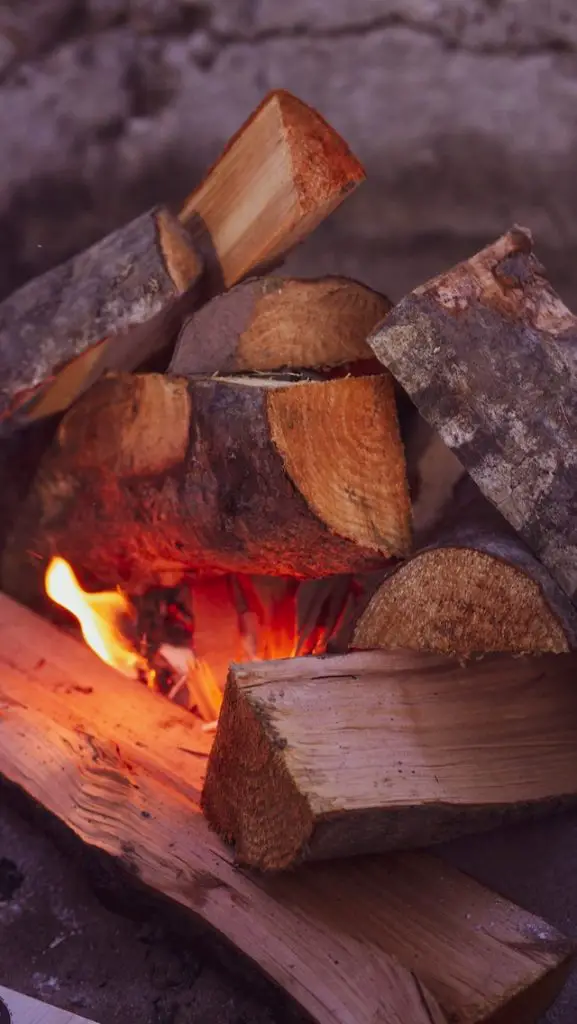
Leave firewood behind but not remnants of a fire
Along the same line of not moving firewood. You may end up with some leftovers after your camping trip. Since we shouldn’t be moving this firewood it is okay to leave it behind for the next camper. Try to find a place that will remain dry in case it rains between your camp trip and the next person’s. Not only is this kind but when you first roll up to a campsite the last thing you want to think about is collecting wood. Having some right there at hand is helpful. Some may say that the camp hosts just collect and resell this wood and if they do at least you are still protecting the environment!
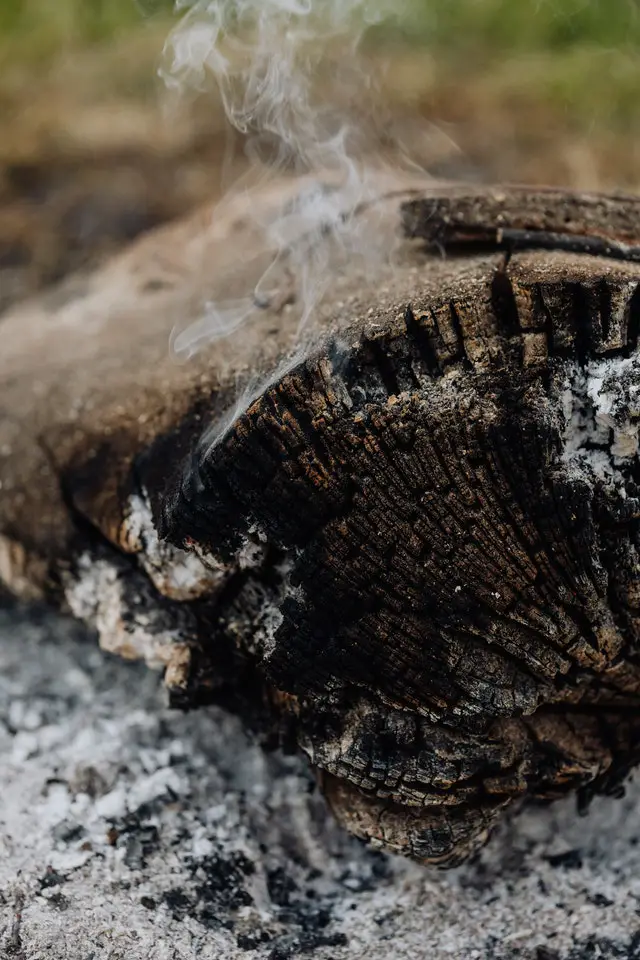
Beyond leaving the firewood behind, don’t leave the remnants of your fire behind. Having a significant amount of ash buildup in a fire ring can be detrimental to the ring functioning properly. It is best to remove all of the fire remnants once it is cool. Most campgrounds will have a special place to deposit ashes so look carefully. I think every fire ring I came across this summer had aluminum foil from foil dinners poorly burnt in it. So make sure that you are collecting all of the trash within the fire ring as well. Better yet, don’t burn trash at a campsite! I am looking at your beer cans!
Become an Expert Campfire Chef now with this guide!
Practice campfire safety
We could write a whole post just on campfire safety and likely we will. However, it is important to practice campfire safety while at a campground. This is an important part of basic camping etiquette. For instance, don’t move or make your own fire pit. Doing so could cause an impact in multiple places on the campsite. Additionally, the fire pit was likely placed to limit the impact on surrounding trees or wildlife. When using the fire pit, build a modestly sized fire, you’re not burning witches at the stake! The campsite next to you doesn’t need to see twenty-foot flames either as they likely have their own fire going.
In many places in the West, there are fire bans. So make sure that you are following the regulations for fires for that location and day. Check the fire watch and see what status it is set to. When assembling your pit fire, make certain to eliminate dry leaves and other errant combustibles from the fire ring. Watch your open-air fire cautiously, and when you go to sleep, drench it with water so it is completely out. Stir it like a big ash soup and make sure that it is out. When you think you are done add more water to the mix because there are still hot embers there!
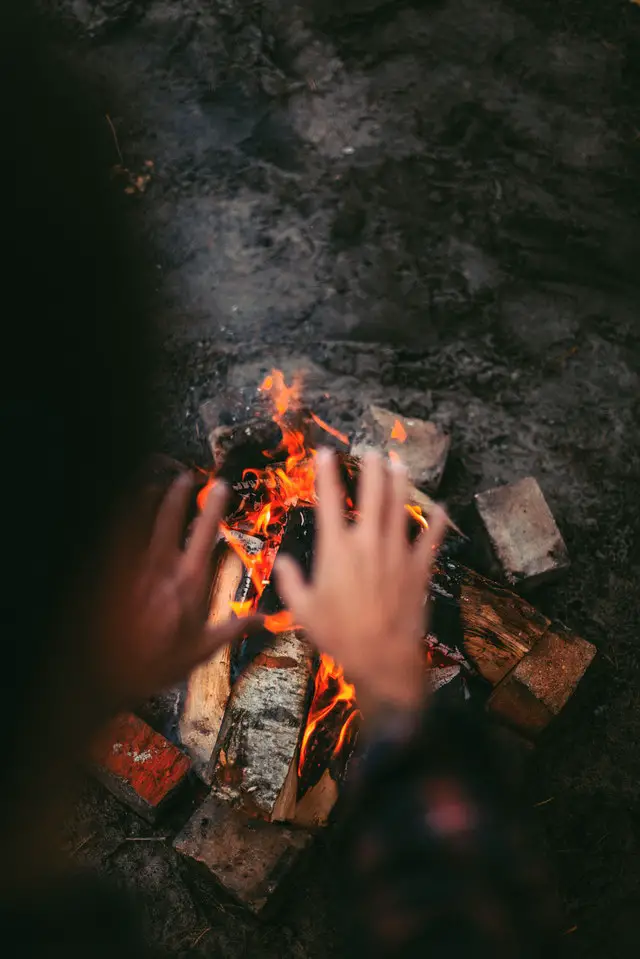
Finally, when it comes to campfire safety, teach your children how to act around a fire. There are a few simple rules that you can follow.
- Draw a circle around the ring that the kids cannot go past
- No rough housing around the fire or playing games like throwing a ball over the fire
- Anything that goes in the fire stays in the fire
- Allow them to help cook but monitor and assist them in doing so
After meal cleanup
When you are planning your trip you can often overlook the fact that you will need to clean up. Plan ahead and purchase some washtubs. This will help contain the water and limit the amount of water that you need to use. Remember that the water fill station or wellhead are not cleaning sites. So don’t wash 1000 dishes at the water pump and leave it a muddy mess. If there is a modern bathroom don’t wash dishes in there either. Instead, look a the campground map and see if they have designated dishwashing stations. This will help to keep the food smell concentrated in one location as well. Animals can be attracted by the smell of discarded dishwater, so it is best not to dump it in your campsite either.
This should go without saying but since I have seen it happen this applies to RVs as well. Just because the only thing in the gray tank is soapy water from the sink and shower does not mean that it is okay to dump it in the campsite. It should be released in the appropriate spot as labeled on the campsite map. For the love of all that is holy, you don’t need to one-up cousin Eddy by not having basic camping etiquette!
Be Social
I expect this one to be a bit controversial. Lots of people head out to go camping to get away from others and do not want to be bothered. Just like in any social situation, you need to read the room. Being friendly and saying hi as you walk past someone can lead to a lasting friendship or it can just be a societal nicety. In either case, simply saying good morning while camping can keep camping friendly. Not everyone wants to be social if you find those who are willing to be when you consider these tips.
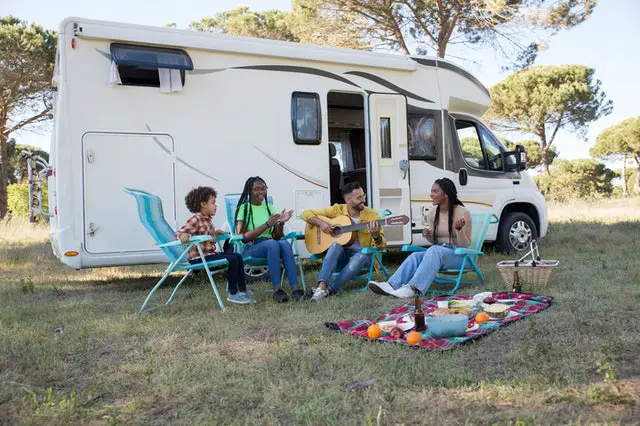
- Have an inviting camp – Having a site that welcomes people in with extra chairs or a beverage can make them feel at home. There are even some items that can be placed in the campsite that indicate certain things about inviting people to join you in your campsite.
- Music around the fire – Having live music around the fire can be nice. However, before you break out that guitar make sure you know how to play it. Stay on the quieter side and keep within the quiet hours. Having some gentle music set to the crackling fire can be warm and inviting. Done correctly you may make some new friends.
- Follow the etiquette above – Following basic camping etiquette will help you make new friends and experiences.
- Ask others about their decorations – Most RVers are excited to describe things on their RV. If they have maps, decorations, or unique tools, they may be willing to share experiences with you. If they seem open to talking reach out and ask them about it! You may learn of a new place to go, find a new tool to incorporate into your camping or find a new feature you want to seek in your next RV.
Dispersed Camping: Basic Camping Etiquette
When you have a few good camping trips under your belt you may want to become a bit more adventurous. This is when you might decide to try dispersed camping. Dispersed camping is when you get a permit to head into the wilderness. You will need to find an adequate campsite first and we have some tips for that as well! You may not think about basic camping etiquette when you are dispersed camping, but it is just as important. It is terrible to stumble upon a natural setting that was destroyed because of not following basic camping etiquette while in the wilderness. Remember that some of the campground etiquette apply here also. So even if you venture out into the wilds of nature, take these tips with you to leave it just as wild when you leave.
Follow Leave-No-Trace Principles
There are seven principles to leave no trace which are easily followed. So anytime that you are heading out to do backcountry or dispersed camping follow these seven principles. Honestly, these principles are more than basic camping etiquette. So follow them anytime you go outdoors and into nature!
- Plan ahead and prepare
- Travel and camp on durable surfaces
- Dispose of waste properly
- Leave what you find
- Minimize campfire impacts
- Respect wildlife
- Be considerate of others

Meeting others on the trail
As you are hiking out to your campsite you may pass others on the trail. It is likely that if this is your first trip or you don’t hike very often you do not realize that there are proper ways to act on a trail. You may know to stay relatively quiet so as not to disturb others. However, did you know that there are unwritten traffic rules as well? For instance, people going downhill should let people going uphill pass safely. This means finding a wide section of the trail early when you see or hear someone coming. If the trail is wide enough it is always polite to walk single file on the right-hand side. Additionally, and this should go without saying, keep your dog leashed on the trail! Following these tips will ensure that you have an enjoyable hike to your site.
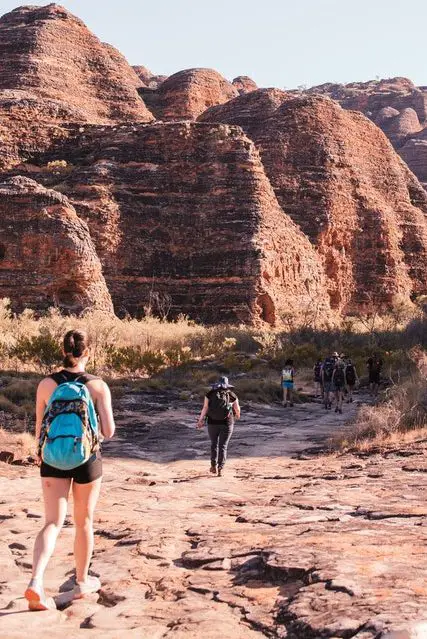
Leave space from other sites
The fantastic thing about dispersed camping is that you can get away from crowded campgrounds. However, there may be instances in some state or national parks where dispersed camping is allowed but in designated spots. In this instance don’t set your campsite up right next to someone else. Not only is it completely creepy to barge into someone’s space but it defeats the purpose of dispersed camping. Additionally, don’t set up your tent or RV on the road or trail and block access to sites further in. If conditions allow and damage can be prevented try to stay just off the track or trail. This will provide you with privacy and allow others to traverse safely to their own sites. Remember that just like in a campground your voice is going to carry. So leave some space!
Plan for overnight food storage

Many people who go backcountry camping are packing in all of their food and they may not have a lot of fresh food. Though this may be the case you should still plan to store your food appropriately since even sealed foods can have smells animals can detect. There are many different ways that you can store your food. Without the benefit of a bear box, the safest way is in a tree. Even in areas that don’t have a ton of bears, secure your food. There’s other wildlife around like raccoons. These critters would love an easy meal! However, consistent feeding by humans, even inadvertently, can cause them to become dependent on or comfortable with humans. This often leads to issues for the animals and the future humans they encounter. Food waste is just as important to store correctly so plan ahead!
Don’t cut down trees for firewood
Just like was discussed above in the campsite transporting firewood is never good. So how are you going to build a fire in the backcountry? Well, first consider if you even need a fire. It is likely that a light backpacking stove is really all you need. If a fire is absolutely necessary then don’t cut down trees to make firewood. First off it is damaging to the habitat. Secondly, you should never burn anything green. It is just going to smoke and not create a fire anyway due to the moisture content. So look to the ground and if it’s it’s gray and old, then it’s burning gold! In any case, it is still recommended to just not even consider having a fire in the wilderness due to the impact and potential for a wildfire.
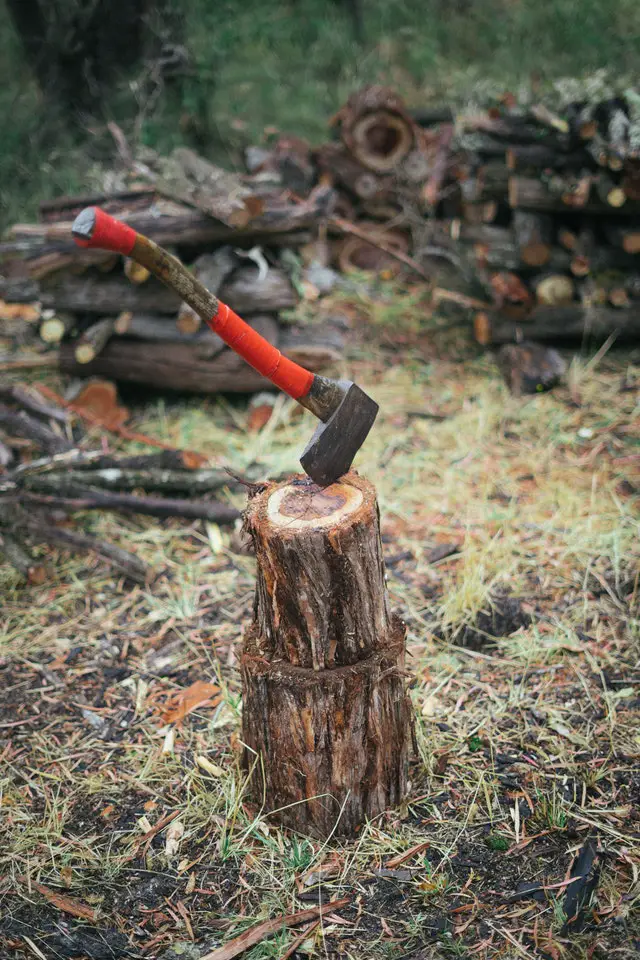
Camping is Not Target Practice
While many people may take a sidearm into the wilderness for protection, it should really only be discharged in an emergency. However, it is amazing how careless some people are when they think there is no one else around. Even if you believe yourself to be secluded you should not have target practice in dispersed camping areas. With the number of people that are now out enjoying natural areas, it is likely that there is someone within the range that you do not see. An errant round could wreak havoc on someone trying to enjoy a quiet and natural setting. not to mention the fact that the noise could scare wildlife away unnecessarily. So be respectful of both nature and other humans who are trying to enjoy the outdoors. In most instances, firearms are not permitted in national and state parks anyways so prepare with other protection devices.
Nature Isn’t a Porta Potty
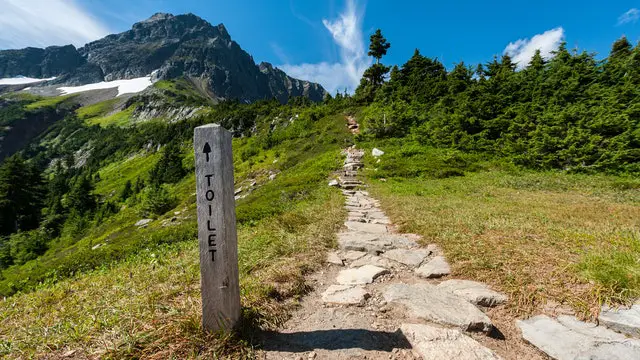
Nature is going to call while you are in the wilderness and this is no time to forget your basic camping etiquette. You are not going to find a developed bathhouse either. So before you even head out you should know how to handle your waste. Carry a shovel so that you can dig a trench or bring along bags so that you can pack it out. Whatever you do though, don’t leave Toilet Paper Blossoms all over the woods! There is nothing worse in the springtime than walking a trail and seeing these blossoms just off the trail because the ground was too frozen to dig a trench.
Additionally, don’t use the facilities in or near lakes, streams, or rivers as it will cause contamination. Stay at least 200 feet away and prep the landing area appropriately. Taking a little care upfront will ensure that nature stays free of contaminants and unsightly toilet paper!
Final Thoughts on Basic Camping Etiquette
Whether you are camping in a designated and improved campground or you are out in the wilderness it is important to remember your basic camping etiquette. It will ensure that you are respectful of nature, wildlife, and your fellow campers. More importantly, it will help you leave the camp better than when you found it. This is really the end goal of following these basic camping etiquette suggestions. So remember there is more to camping than just buying gear and reserving the campsite. In order to best enjoy nature and escape the hustle and bustle of daily life, you need to instill these types of habits early on in your camping career. So be a good camping neighbor on your next trip!
Tell us your basic camping etiquette horror stories in the comments below! Do you have other things that you like to follow when you are out camping and hiking? We would like to hear about them in the comments, on our Facebook, or on Reddit!


